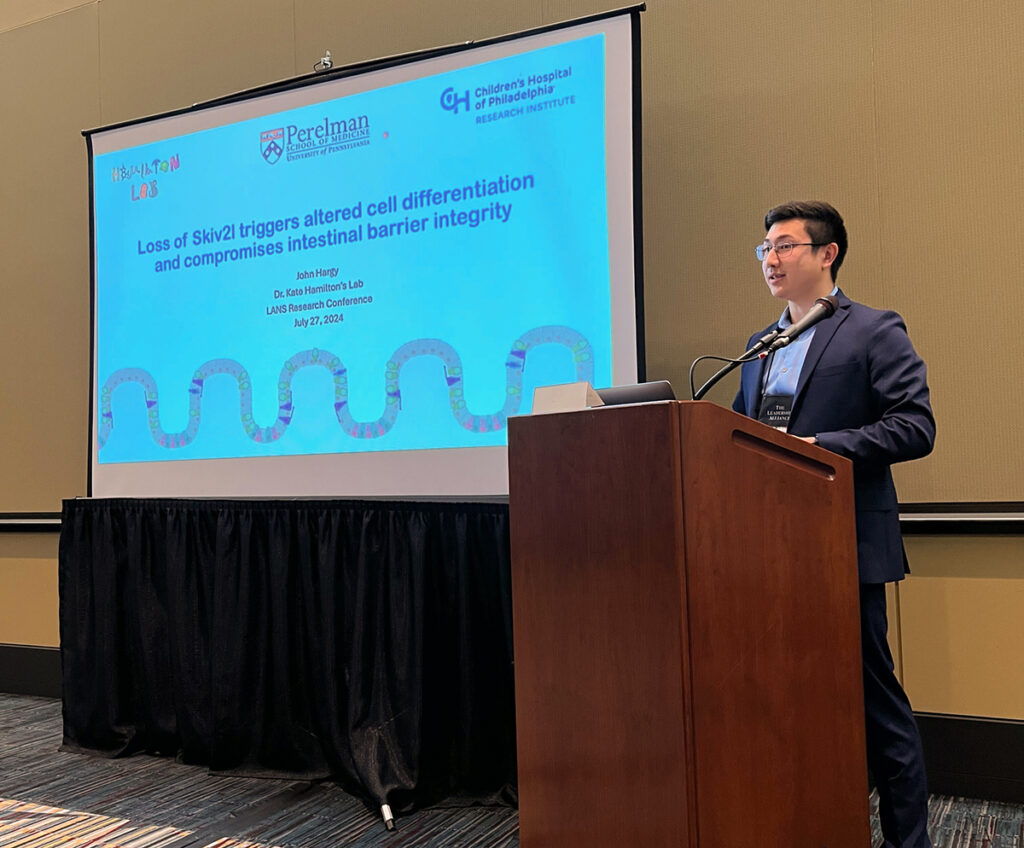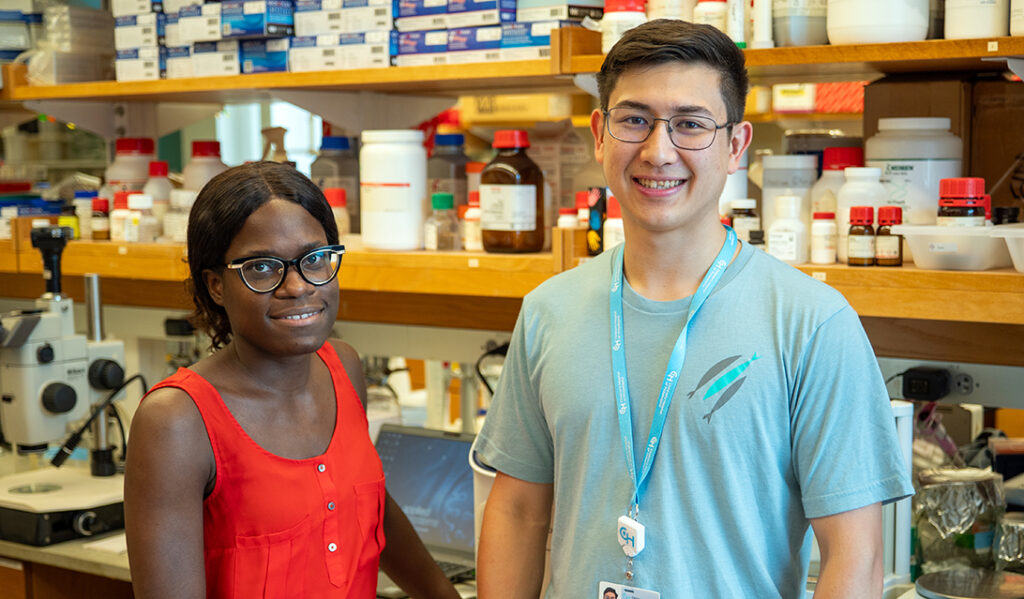Blog by John Hargy, undergraduate student at Southern Adventist University
Coming from a small undergraduate university in the Tennessee Appalachia with limited research opportunities, I was thrilled when I read and reread (and reread again) my acceptance letter into the Penn IDEAL Summer Undergraduate Internship (SUI) program. Basic biomedical research was something I knew I wanted to do, and the opportunity to do it at one of the top research institutions in the nation filled me with excitement. After finishing up the spring semester, I packed my bags and moved to Philadelphia for my 10-week scientific journey that would quickly turn out to be a transformative experience.
At the beginning of my program, I was a little bit nervous. I had chosen to work in the lab of Dr. Kate Hamilton because I found her research on intestinal epithelial regeneration interesting. However, I knew little about the intestinal epithelium nor was I familiar with the techniques in the lab. On my first day, I felt like a tourist trying to navigate through complex protocols and advanced equipment. Fortunately, all my fears were put to ease after I realized I had a fantastic postdoctoral mentor, Dr. Shaneice Nettleford. I also had a whole lab of individuals willing and ready to be tour guides in this new scientific journey.
For my summer project I worked with Dr. Nettleford to determine the role of the Skiv2l gene in the intestinal epithelium’s barrier integrity. The Skiv2l gene is implicated in a form of inflammatory bowel disease (IBD) and elucidating its role could possibly lead to new therapies in epithelial regeneration and repair. As part of this project, I generated intestinal organoids from mice lacking the Skiv2l gene. Intestinal organoids are tiny, lab-grown versions of the gut, about the size of a grain of sand, that mimic how our intestines work. I analyzed the resulting protein and RNA expression changes in these organoids and found out that Skiv2l is crucial for the healthy intestinal epithelium. I learned numerous techniques through these experiments including intestinal organoid culture, Western blots, and quantitative PCR.
Since heat waves are a devastating side effect of climate change impacting every organ system including the gastrointestinal tract, I also sought to investigate the effect of heat stress on intestinal health using these Skiv2l deletion intestinal organoids. I heat shocked the organoids and then assessed the cellular response. The disruption of Skiv2l is already stressful to cells, and the additional stressor of a heat shock can help us understand how environmental stress exacerbates cellular dysfunction, particularly in the intestine where heat can compromise gut integrity.
In addition to my research, I also had many opportunities for professional development this summer. I attended informational sessions about the various graduate programs on campus, seminars in which faculty shared their research and journey in science, and workshops on resume building and applying to grad programs. I found these experiences equally as important as research in my development as an independent scientist.

The highlight of my summer was attending my first research conference, the Leadership Alliance National Symposium (LANS) in Hartford, Connecticut. At this national undergraduate conference, I had the opportunity to meet student researchers from across the United States. Here I gave a 15-minute presentation about my summer research. I even managed to answer a few tough questions from the audience, which I consider a double win.
Overall, the SUI program beat all expectations I had, despite not knowing what to expect. This summer was one of personal growth and discovery and by the end I graduated from tourist to confident researcher. I learned that science involves more than just academics; it also involves a lot of patience and a bit of humor. This summer has not only solidified my interest in pursuing a graduate degree but also reinforced my commitment to a career in research where I can continue to explore, innovate, and contribute to the scientific community.

